In Search of Cures to Mend Broken Hearts
“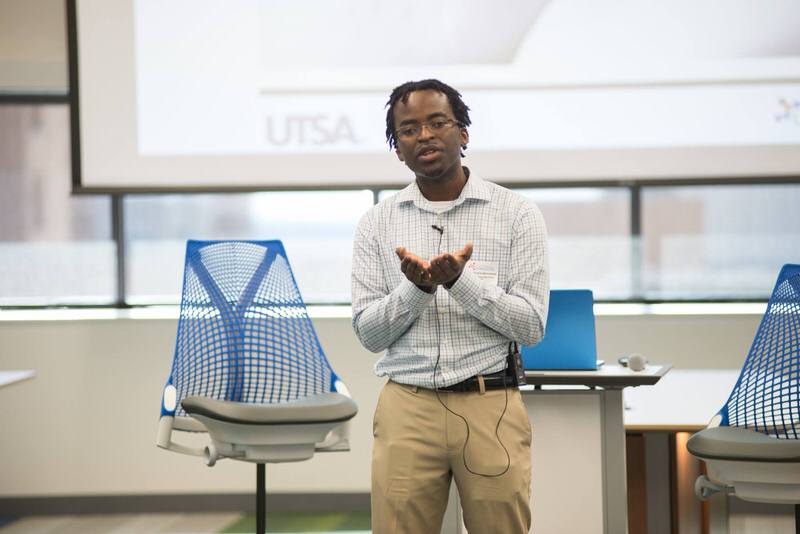 The heart can lose about ¼ of its function in a matter of hours following a heart attack, and this is just one disease under the umbrella term of cardiovascular diseases, which are the leading cause of death not only in America, but the world over,” explained heart disease researcher Ngoni Madungwe.
The heart can lose about ¼ of its function in a matter of hours following a heart attack, and this is just one disease under the umbrella term of cardiovascular diseases, which are the leading cause of death not only in America, but the world over,” explained heart disease researcher Ngoni Madungwe.
“The loss of function is followed by a period of negative remodeling which results in beating heart tissue being replaced with stiff scar tissue. The best option we currently have to treat patients of heart attacks, or myocardial infarction, is organ transplantation, but for a long time now there just hasn’t been enough donors to match demand. And this is where science and engineering come in,” he said.
Madungwe is a Biomedical Engineering Ph.D. student in Dr. Jean Bopassa’s lab where he works on research to find ways to regrow damaged hearts. He explained that unlike other organs, the adult heart has little to no capacity to heal itself once it has been damaged.
“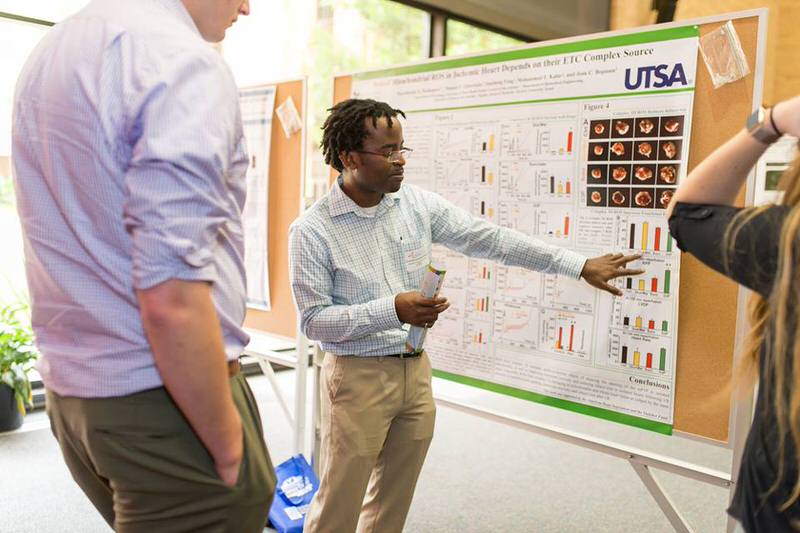 The human heart is one of the first organs formed during development but its cells stop multiplying a few days after birth and from that point on, a person has essentially the same number of cells which then enlarge to more than ten times their original size,” he said.
The human heart is one of the first organs formed during development but its cells stop multiplying a few days after birth and from that point on, a person has essentially the same number of cells which then enlarge to more than ten times their original size,” he said.
“The challenge is thus, how do we create or engineer heart tissue in the lab, or incite a damaged heart to repair itself?”
Madungwe became interested in tissue engineering and regenerative medicine while working with Dr. Lauren Black at Tufts University in Massachusetts.
“Dr. Black introduced me to the concept of creating biological patches which can be used to deliver stem cells and medicine to infarcted tissue, similar to how we use Band-Aids to treat wounds,” he said.
U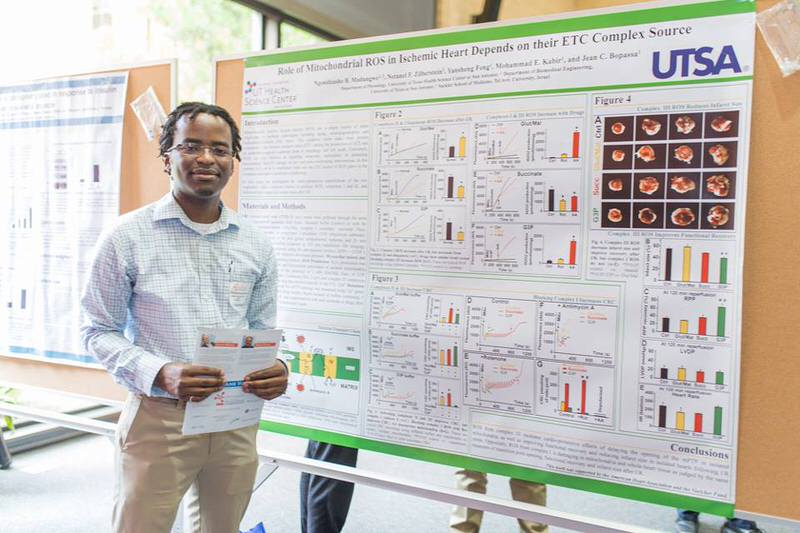 pon earning his bachelor’s degree in chemical engineering from Tufts University, Madungwe decided to work in Boston as an associate scientist at Vertex Pharmaceuticals, where he helped develop treatments for cystic fibrosis.
pon earning his bachelor’s degree in chemical engineering from Tufts University, Madungwe decided to work in Boston as an associate scientist at Vertex Pharmaceuticals, where he helped develop treatments for cystic fibrosis.
“What inspired me to pursue this opportunity was the groundbreaking nature of the work Vertex was, and is still doing today. Their pipeline of therapies work to treat the underlying genetic causes of cystic fibrosis and not just address the symptoms,” he said.
Madungwe shared how the drug whose development he was involved in went on to get FDA approval, and how this was both demanding and rewarding.
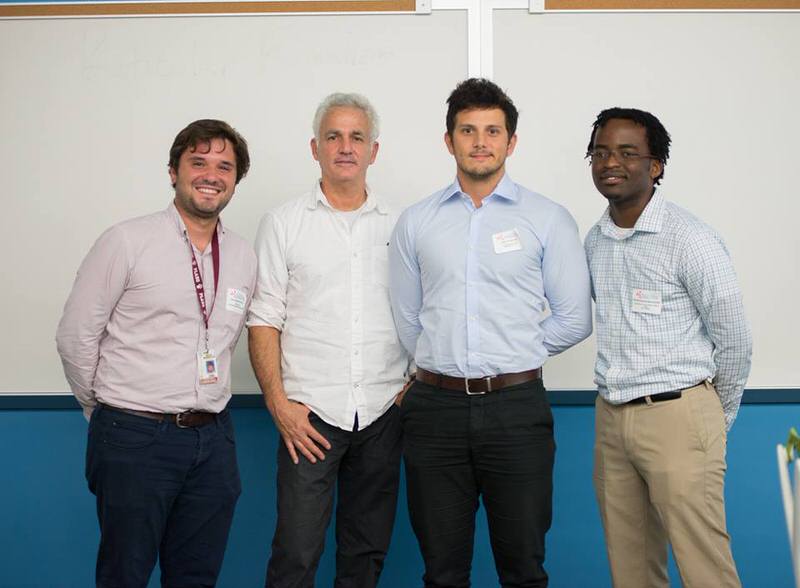 “The process of developing a therapy from the lab, through human clinical trials and finally to FDA approval for patients is a long and difficult journey. Many potential drugs are created in labs but a lot of them never progress beyond the test tube for many reasons including poor stability and toxicity. Others make it all the way to clinical trials only to show no effects or worse, have terrible side-effects when tested in humans.”
“The process of developing a therapy from the lab, through human clinical trials and finally to FDA approval for patients is a long and difficult journey. Many potential drugs are created in labs but a lot of them never progress beyond the test tube for many reasons including poor stability and toxicity. Others make it all the way to clinical trials only to show no effects or worse, have terrible side-effects when tested in humans.”
Madungwe went on to explain that, “The experience taught me a lot about the work that’s needed to create a drug, but more importantly, it allowed me a chance to see the impact the work I was doing was having on real people’s lives.”
“In science it’s very easy to get lost in details of one’s project and ado science’ simply for the sake of it, but to occasionally lift one’s head and remind yourself of why you do what you do is very important. For me, hearing directly from patients who took medicine I worked on made all the late nights and repeated experiments absolutely worth it.”
Madungwe moved to Texas to pursue graduate studies in the Joint Graduate Program in Biomedical Engineering between UT Health San Antonio and UTSA. And with insight gained from industry, he rekindled his interest in mending broken hearts in Dr. Jean Bopassa’s lab.
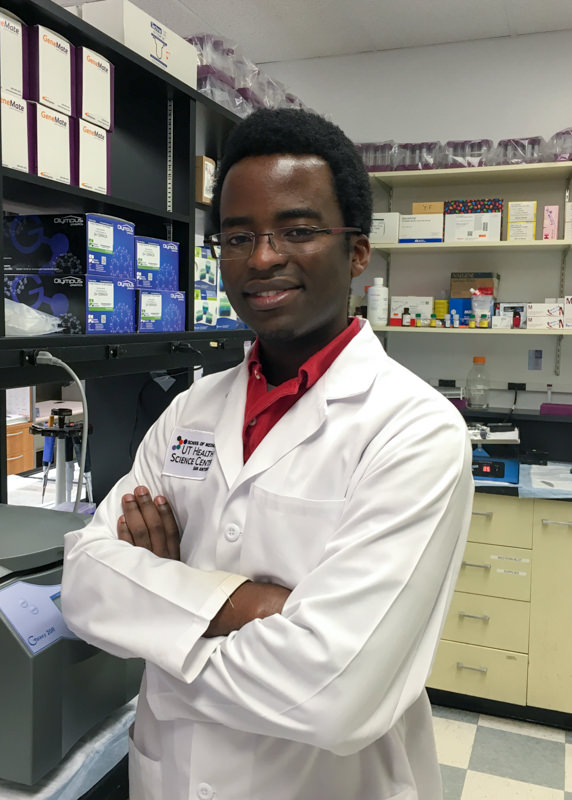 “My current projects are based on the fact that premenopausal women are less susceptible to heart attacks than men of similar age, but postmenopausal women and men have equal likelihood of suffering from heart disease. The difference maker in all this is estrogen.”
“My current projects are based on the fact that premenopausal women are less susceptible to heart attacks than men of similar age, but postmenopausal women and men have equal likelihood of suffering from heart disease. The difference maker in all this is estrogen.”
He explained that estrogen is known to have protective effects in the heart, an effect termed “cardioprotection.”
“We study estrogen’s cardiprotective role both before and after infarction, and how it could potentially ignite cellular regeneration in the injured adult heart. The hope is that someday, we can develop drugs to initiate repair in the heart whether that’s with stem cells or even the heart’s own cells.”
After graduation, Madungwe would like to work in industry where he says he can best apply himself to getting therapies from the lab to the clinic. He would also like to be active in the community and help teach science and engineering to future generations.
“Part of why I want to teach is because I reflect on the teachers who have made a difference in my life and how they forever shaped the person I am today. The ideas they inspired in me and the doors they opened have brought me here. I like to think of them as miracle workers — those people who care about you and probably unknowingly change your path forever.”
Ngoni Madungwe, recently won first place at the 3 Minute Thesis competition at the Mikiten Graduate Research Symposium. Watch his presentation below.
 This article was written by Charlotte Anthony, marketing specialist at the Graduate School of Biomedical Sciences at UT Health San Antonio. This article is part of the “Meet The Researcher” series which showcases researchers at the Graduate School of Biomedical Sciences at University of Texas Health Science Center San Antonio.
This article was written by Charlotte Anthony, marketing specialist at the Graduate School of Biomedical Sciences at UT Health San Antonio. This article is part of the “Meet The Researcher” series which showcases researchers at the Graduate School of Biomedical Sciences at University of Texas Health Science Center San Antonio.
